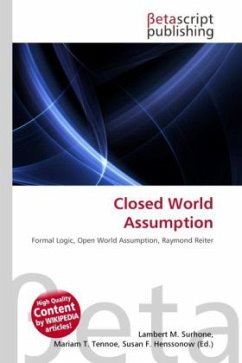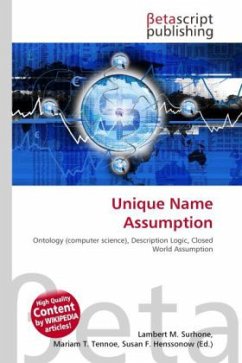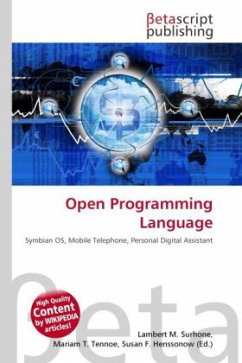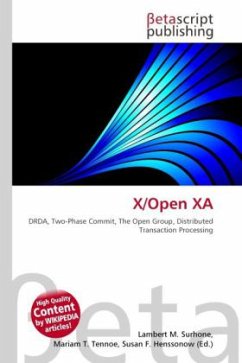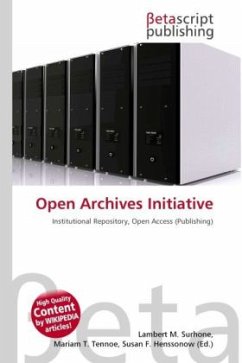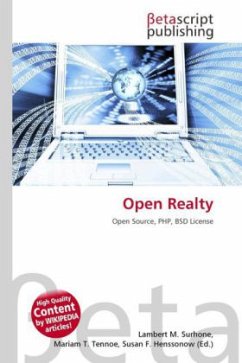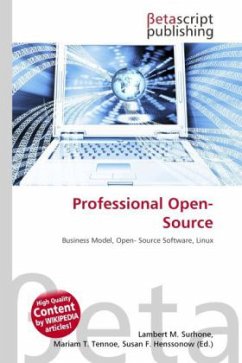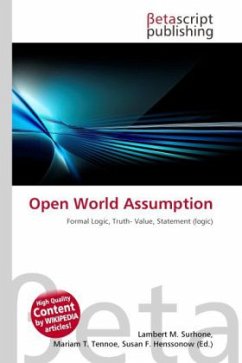
Open World Assumption
Versandkostenfrei!
Versandfertig in 6-10 Tagen
26,99 €
inkl. MwSt.

PAYBACK Punkte
13 °P sammeln!
High Quality Content by WIKIPEDIA articles! In formal logic, the open world assumption is the assumption that the truth-value of a statement is independent of whether or not it is known by any single observer or agent to be true. It is the opposite of the closed world assumption, which holds that any statement that is not known to be true is false. The open world assumption (OWA) is used in knowledge representation to codify the informal notion that in general no single agent or observer has complete knowledge, and therefore cannot make the closed world assumption. The OWA limits the kinds of ...
High Quality Content by WIKIPEDIA articles! In formal logic, the open world assumption is the assumption that the truth-value of a statement is independent of whether or not it is known by any single observer or agent to be true. It is the opposite of the closed world assumption, which holds that any statement that is not known to be true is false. The open world assumption (OWA) is used in knowledge representation to codify the informal notion that in general no single agent or observer has complete knowledge, and therefore cannot make the closed world assumption. The OWA limits the kinds of inference and deductions an agent can make to those that follow from statements that are known to the agent to be true. In contrast, the closed world assumption allows an agent to infer, from its lack of knowledge of a statement being true, anything that follows from that statement being false.



